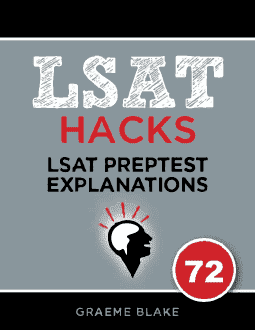DISCUSSION: The passage discusses how we can achieve the goals of the UNESCO regulations (preserving information about artifacts and ensuring cultural ownership of artifacts) despite limited resources and looting.
The author recommends allowing some excavations in exchange for information and taxes.
___________
- This answer sort of sounds like paragraph 2, but it doesn’t describe it accurately.
This answer totally misses the main point of the passage: looting, and how to manage it. - CORRECT. This describes everything. Paragraph 1 is the failure of preservation. Paragraphs 1, 2 and 3 describe the laws prohibiting export, and the consequences. Paragraph 4 describes the more flexible solution: allow legal excavations.
- Nonsense. This answer plays on American fears of international institutions. Those are outside assumptions that have nothing to do with the passage. Mali passed laws voluntarily, and agrees with UNESCO’s position.
- This contradicts the passage. The fourth paragraph suggests licensing more than accredited archaeologists. See lines 51-54, they imply professionals won’t be the only excavators.
- Tempting, but this isn’t quite right. The author doesn’t think Mali should give up ownership of the artifacts. The author thinks Mali should change how it allows others to use the artifacts. Currently, there is a total ban on excavation, but the author thinks there should be some legal excavations. (paragraph 4.)
This might have been right if it said: “The total prohibition on legal excavation, inspired by international regulations, does more harm than good in countries like Mali.”


Leave a Reply